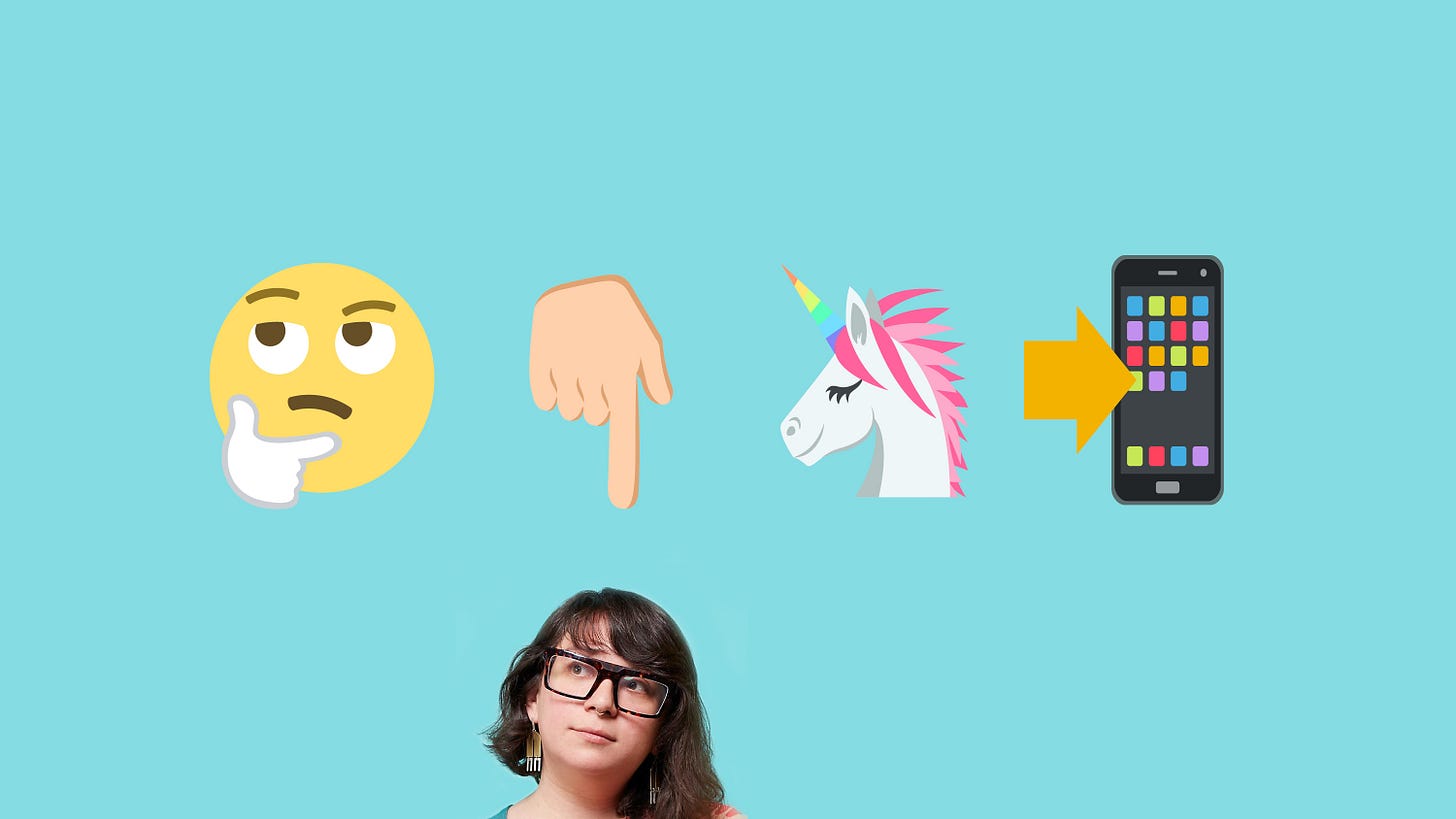The Woman Who Decides What Emojis We Use [Content Made Simple]
Issue #220: TikTok adds job features and is home to evangelism; also, state prosecutors ask Zuck to stop.
The Woman Who Decides What Emojis We Use
Quote:
My understanding is that 80% of communication is nonverbal. There’s a parallel in how we communicate. We text how we talk. It’s informal, it’s loose. You’re pausing to take a breath. Emoji are shared alongside words.
When emoji first came around, we had the misconception that they were ruining language. Learning a new language is really hard, and emoji is kind of like a new language. It works with how you already communicate. It evolves as you evolve. How you communicate and present yourself evolves, just like yourself. You can look at the nearly 3,000 emoji and it [their interpretation] changes by age or gender or geographic area. When we talk to someone and are making eye contact, you shift your body language, and that’s an emotional contagion. It builds empathy and connection. It gives you permission to reveal that about yourself. Emoji can do that, all in an image.
Commentary:
Quite an interesting interview with the leader of the organization that decides what emojis are and are not created.
ON THE POD
Twitter tip jars and graduation parties
Twitter has introduced a tip jar, but is that a good thing for the social media service? We think so. Also, we decide whether graduation parties are overrated or underrated.
HITTING THE LINKS
Link #1: Scoop: TikTok launching jobs service for Gen Z
TikTok is innovating a lot, and this is yet another example of that.
TikTok is testing a tool for brands to recruit employees, sources tell Axios.
Details: The pilot program is designed to help people find jobs on TikTok and connect with companies looking to find candidates. It's also meant to help brands use TikTok as a recruitment channel.
The company is currently testing the service with a beta group of companies. Several big brands have been asked about participating, including sports leagues.
The platform isn't a product that's integrated within TikTok itself, but rather a separate web page accessible via the TikTok app where brands can post jobs, primarily entry-level listings.
Link #2: The Rise of Christian TikTok
It’s really easy to dog TikTok and any other internet trends dominated by teenagers. But we shouldn’t, and this is one great example of why.
Liana Gordan says God used TikTok to save her.
Though the Ontario, Canada-based 17-year-old grew up with parents who identified as Orthodox, she didn’t spend much time in church as a kid. It wasn’t until last spring that she started really looking into Christianity for herself — and part of the inspiration to do so was seeing impassioned teens open up about their faith on TikTok.
“This app was used to save me,” she says in a video posted in November. “I was seeing Christian creators on my For You Page, and I was like, ‘Whoa.’ And I started reading my Bible.” Soon, she was making faith-centric TikToks of her own. Her articulate breakdowns of dense theological concepts, from eschatology to Calvinism, attracted 71.8K followers — catapulting Gordan into the world of the Christian creators who had first influenced her.
I’m with these attorneys general. Please, for the good of the children, do not create an Instagram specifically for children.
Attorneys general for 44 states and jurisdictions called on Facebook to halt plans to create a version of Instagram for young children, citing concerns over mental and emotional well-being, exposure to online predators and cyberbullying.
In a letter on Monday to Facebook’s chief executive, Mark Zuckerberg, the prosecutors warned that social media can be harmful to children and that the company had a poor record of protecting children online. Facebook, which bought the photo-sharing app Instagram in 2012, currently has a minimum age requirement of 13 to use its products. According to federal children’s privacy rules, companies must ask parents for permission to collect data on users younger than 13.
The law enforcement officials pointed to research showing how the use of social media, including Instagram, has led to an increase in mental distress, body image concerns and even suicidal thoughts. A children’s version of Instagram doesn’t fill a need beyond the company’s commercial ambitions, the officials said in the letter.
THE FUNNY PART
If you like this, you should subscribe to my free newsletter of funny content I find online. It’s called The Funnies. It delivers on Saturday mornings.
You can subscribe to The Funnies here. (It is and will always be free.)




